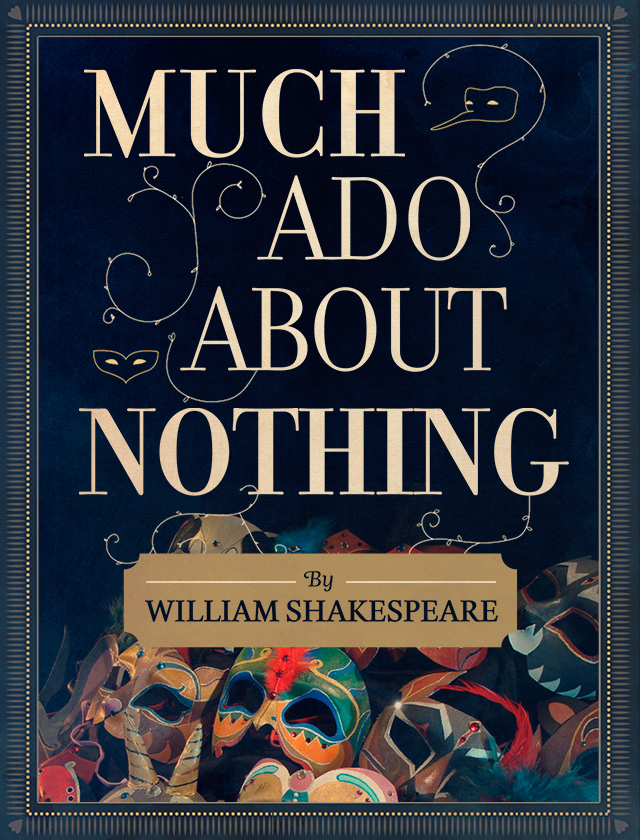Much Ado About Nothing
by William Shakespeare
Benedick
For all his claims to find Beatrice unattractive and disdainful, Benedick reveals his attraction to her in the very first scene of the play when he tells Claudio that Beatrice “exceeds” her beautiful cousin Hero “as the first of May doth the last of December.” Benedick’s sensitivity to Beatrice’s mockery during the masquerade ball reveals his underlying admiration of her, as well. For all his satirical criticisms of marriage, Benedick is remarkably quick to change his attitude once he comes to believe that Beatrice loves him, and he does so with little undue pride; rather, he demonstrates great maturity in deciding to embrace the love that is before him, and strength of character in his refusal to be troubled by other people’s jokes. He relevantly asks himself, “doth not the appetite alter?” and quickly admits to his friends that he is a changed man.
Benedick also demonstrates a more mature and powerful type of masculinity than either Claudio or the prince. While Claudio and Don Pedro are rather easily convinced of Hero’s infidelity, Benedick trusts his instincts as well as Hero’s and Beatrice’s words. He stands by Beatrice and her family rather than shunning them for fear of his own reputation and, while Claudio and the prince are lightly jesting about Leonato just after they have slandered his daughter, Benedick issues Claudio a serious challenge. Benedick is loyal and devoted to Beatrice, and he is able to set aside boyish jokes and banter when the situation calls for serious action. In all of these ways, he differs significantly from Claudio and the prince. Perhaps because of this, Benedick takes over the leadership role at the end of the play, stating that he will think of how Don John should be punished and ordering the musicians to strike up their instruments.
Sign up to continue reading Benedick >